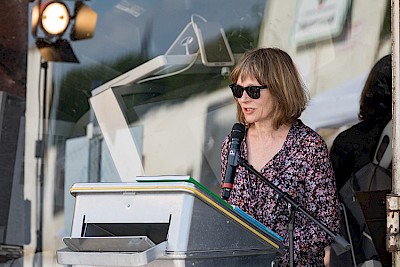
 Das Müllprojekt
Das MüllprojektWhat does it mean when birds use plastic scraps to bolster their nests in urban areas, or when the disposable packaging of mobile phones is transformed into finest porcelain decorated with traditional Chinese painting? Does it make sense when a lightbulb banned by the EU finds a new function as a terrarium for a rare plant? These are the kind of examples this lecture intends to introduce.
In my own artistic work and my work at the Bauhaus-Universität Weimar since 1993, my focus in dealing with waste has shifted from a fascination for found objects and their inherent narrative qualities, to a historical and culture-theoretical occupation with everyday items, acting both as witnesses of their time and artefacts of our value systems. With the rapid changes underway regarding the relationships between humans and nature as well as the lingering threat of climatic catastrophes, the collaboration between the art students and those studying environmental engineering sciences at the university has intensified, become more political and generally more process-oriented.
The lecture »Rethinking Material« features examples from art projects and interdisciplinary field research that provide poetic, funny and inventive responses to the question: »What role does art play in the effort to inspire an audience to gain a heightened perception for the grave environmental issues?«




has worked as a Professor of Sculpture and Installation at the Bauhaus-Universität Weimar since 1993. In advancement of the Bauhaus concept, together with environmental engineers, she conducts research at the interface of art and science. This interdisciplinary collaboration in the scope of research projects has resulted in the publications and exhibitions: »Flottsam and Jetsam« in 2001, »Entrop(H)y: Müll und Kunst« in 2011 and »Border City: Chapter 1« in 2015. With the support of DAAD, in 2001 Liz Bachhuber founded the English-language, internationally oriented Master of Fine Arts Programme »Public Art and New Artistic Strategies«, which she headed until 2011.